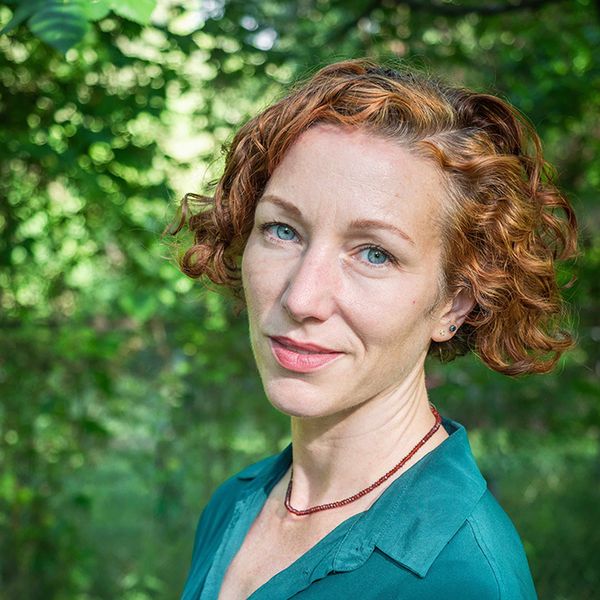Lia Purpura, Parasol Mushroom (detail), featured in AGNI 102
from Infernal Selves
The road in forks into bramble and branch.
Old washing machine, rusted refrigerator—
it’s been a hundred years since I’ve come here.
What returns to me? Sycamore, red maple,
tulip poplar, I always heard tulapoplar.
So tell me: does the white oak
still stand by the dead lake, its folds of bark
hanging like an old woman’s labia?
Does the bee tree thrum by the dry lake bed?
The house across the field, the light went out
the first year we lived there.
~
I—narrowest of selves, a door open a crack.
We the family, the living, they the past.
Only time lies between them and us,
time and the willingness to change. Only the willingness
separates us from them and them from
you, a room in which to stage this séance.
~
Know your history.
Know you come from a stone crop and go back there.
Bole of the maple tree your mother planted may survive you.
Their home has become ruin, become a biodynamic farm,
become a Walmart with sweet blood dripping from
the joists, blood that tastes of you.
In this land they did wrong
and though it’s burned into the ground
so easy to follow their trace in the fields
we must not go the same way.
On the census of 1830
in Jefferson County in the Florida territory:
the nameless wife of one Hugh Duncan,
age 20–29, born in North Carolina. She swarmed in her season.
The X of her who lived burns down my blood.
Hold the shroud three inches from your face and say,
“I’m not dead,
I’m Rebecca and I’m not dead yet.”
~
Everyone’s tragedy is a family tragedy.
“This world is not my home,” said everyone
in my mother’s family, my mother’s father’s family,
people from Surry County, Virginia,
kin to Eldridge Maddera, to Powhatan Sledge,
who on the 1850 slave schedule
reported nine slaves by sex and age, not name, and so it went
all across Surry County, Virginia,
in 1850 and 1860 when the slave schedules were taken
along with the names of your white children,
children who grew up to say,
“This world is not my home.”
~
Am trying to write
from the record
but where it touches the pain
of another
my paper crumbles.
Don’t
make them a distraction,
humans in a record of monstrosity
where you are the monster. Write the monster.

Lightsey Darst
Lightsey Darst is the author of four books of poetry, all from Coffee House Press, the latest, The Heiress/Ghost Acres, forthcoming next month. She’s been awarded two National Endowment for the Arts fellowships, one for dance criticism and one for poetry. She lives with her family in Durham, North Carolina. (updated 3/2023)
